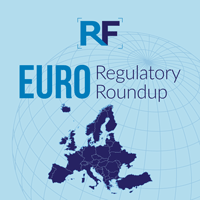Euro Roundup: MHRA revises guidance on remote clinical trial monitoring, EHR access
 Biologics/ biosimilars/ vaccinesBiotechnologyClinical TrialsEuropeMedical DevicesPharmaceuticalsProduct LifecycleRegulatory Intelligence/Policy
Biologics/ biosimilars/ vaccinesBiotechnologyClinical TrialsEuropeMedical DevicesPharmaceuticalsProduct LifecycleRegulatory Intelligence/Policy Biologics/ biosimilars/ vaccinesBiotechnologyClinical TrialsEuropeMedical DevicesPharmaceuticalsProduct LifecycleRegulatory Intelligence/Policy
Biologics/ biosimilars/ vaccinesBiotechnologyClinical TrialsEuropeMedical DevicesPharmaceuticalsProduct LifecycleRegulatory Intelligence/Policy